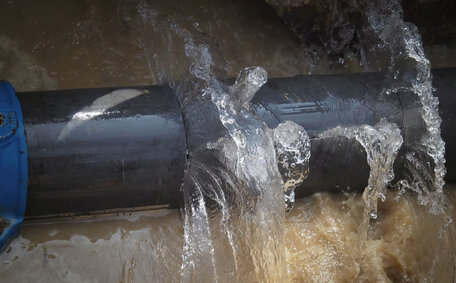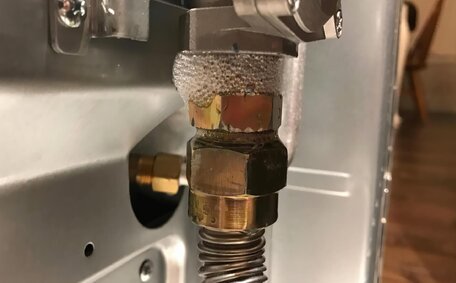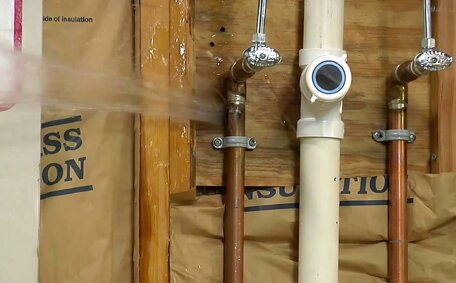Introduction: Understanding DIY Hot Water System Repairs
DIY plumbing repairs may seem appealing when facing malfunctioning hot water systems. Assessing the complexities involved is crucial before considering a DIY approach. Yet, DIY repair risks underscore the necessity for expert plumbers to ensure safety and correctness.
Systems involve all components which can also cause concerns, such as the anode rod to prevent corrosion, a pressure relief valve to manage water pressure, a pilot light and burner to heat the water, and a thermostat to regulate temperature. While problems might seem straightforward, underlying complications can emerge, leading to more severe issues.
DIY plumbing without proper expertise can lead to disasters, damaging your entire system and exacerbating problems. DIY plumbing can void manufacturer warranties; it’s safer to seek professional help to ensure issues are fully resolved and future problems are prevented.
Electrical Hazards and Risks
Attempting DIY repairs on your hot water system’s electric water components poses serious safety hazards. To avoid DIY disasters, Understanding the risk of electric shock or electrocution from mishandled wiring and connections is critical. DIY repairs involving water and electricity are exceptionally risky, as water is an excellent conductor of electricity, exponentially increasing dangers.
Managing a DIY electrical plumbing project requires understanding of safety regulations, circuitry, grounding, and the use of specialised equipment in compliance with local codes. It is crucial to recognise that professionals may also encounter heater complications with injury risks when working on hot water systems.
A misconnected wire can channel deadly voltage, jeopardising your safety and that of your family. Engaging a professional plumber or electrician is crucial to mitigate risks when dealing with plumbing repairs.
Electrocution
Attempting electrical repairs on your professional hot water system without proper precautions risks electrocution. Turning off power at the circuit breaker may introduce risks of injury, even when it seems safest, as residual voltage may linger in the wiring. Proper personal protective equipment, testing equipment, and shutting off water supply are mandatory.
Electrocution occurs when electric current passes through the water your body conducts, which is meant to heat water and not cause injury or death. As little as 50V can be fatal if current passes through vital organs. With water pipes and the storage tank conducting electricity, a DIY mistake can electrocute your entire household.
In the colder months, it’s vital to have any electrical work on your system done by a licensed electrician. They understand the safety procedures and have specialised equipment to work safely with electricity near plumbing.
Fire
Attempting DIY water heater repair without proper knowledge also risks causing a fire. A faulty water heater can overheat and ignite surrounding materials. As hot water systems involve both electricity and gas lines, a fire can easily spread through walls and plumbing.
Moreover, Inadequate DIY repairs can lead to catastrophic fires, potentially consuming entire properties. The resulting property damage often totals hundreds of thousands of dollars. Additionally, home insurance claims may be denied if fires result from inadequate repairs.
Recruiting a licensed plumber for meticulous water heater repairs is crucial to avert mishaps. They make sure to follow safety procedures like testing wires with specialised equipment before turning power back on to avoid potential water repair fire hazards.
Exposure to Toxic Chemicals
Hot water systems use chemicals like magnesium rods and corrosion inhibitors. Manhandling these chemicals during repair attempts can pose significant dangers, including chemical burns or respiratory issues. Some corrosion prevention chemicals also produce hazardous fumes.
Consult your water heater’s owner manual for getting your proper handling, storage and disposal methods for any chemicals. Do not mix chemicals without knowledge of the potential reactions to avoid the risk of toxic gas emission or explosions.
Homeowners trying to replace chemicals risk spilling corrosive substances and inadequate cleanup. Even minor chemical leaks can reduce indoor air quality, leading to health issues or water damage over time.
Gas Leaks and Explosions
Gas hot water systems involve danger from potential gas leaks. Gas leaks could lead to possible fire hazards or explosions that can cause injuries and extensive property damage. Strict protocols exist for gas line installation and repair to prevent leaks.
Using gas detector equipment is vital when working on gas water systems. Small, persistent leaks present explosion dangers and emit toxic fumes. If you smell gas or suspect a leak, immediately evacuate the area and ensure ventilation, then swiftly determine when to call a professional or your gas emergency hotline.
Qualified professionals alone must address repairs and pipework on gas water heater systems. Improper DIY repairs on gas systems can lead to further risks of leaks, fumes, fire, explosions, and negligent damage. Attempting DIY repairs can also void home insurance protections.
Carbon Monoxide Poisoning
Gas water heaters pose the deadly risk of carbon monoxide poisoning from improper ventilation. Incomplete combustion in gas heaters can release the dangerous, odourless carbon monoxide. Prolonged exposure, even at low levels, can be fatal.
Install carbon monoxide detectors on every level of your home, especially near the water heater. If alarms sound, evacuate immediately and call emergency services. Attempting repairs on your own risks further exposure.
Carbon monoxide is responsible for over 400 unintentional deaths annually in the U.S. Attempting DIY water heater repairs on gas appliances risks exposing your entire household. Only Qualified professionals should handle any heater repair involving gas lines or combustion.
Water Pressure and Scalding Issues
Incorrect adjustment of water pressure in your hot water system can heighten safety risks and increase repair costs. Excessive water pressure stresses components, causing leaks or tank ruptures. It also increases tap water temperature, risking scalds.
Consulting professionals to determine if your system can manage optimal pressure is advised. Incorrectly set pressure relief valves fail to protect against excessive pressure, potentially escalating the cost repairs during plumbing jobs. Attempting DIY repairs risks further damage, injury or voided warranties if issues remain unresolved.
Licenced plumbers use gauges to test pressure settings across household supply lines. They understand safe limits and ensure your adjustments meet regulations. Attempting your DIY repairs without this technical knowledge risks pressure-related accidents and damage.
Voiding Warranties and Increasing Costs
Attempting DIY water heater repairs on your hot water system often voids your warranty. Some brands like Rheem explicitly state warranty coverage is void if repairs are performed by anyone other than licenced professionals.
Voided warranties could incur extra costs for repairs or replacements usually covered. Out-of-pocket costs for future problems your system may incur can total thousands of dollars. You also risk causing problems not covered by warranties if improper repairs exacerbate existing problems.
It’s vital to think about the manufacturer’s terms before attempting repairs yourself. Beyond voiding warranties, DIY repairs that fail to address repair issues can increase long-term costs. Seemingly simple fixes may mask underlying issues that then worsen or spread over time.
While a DIY fix may seem cost-effective initially, it can result in much higher expenses in the long run. Faulty DIY repair efforts could end up doing more harm than good, causing further damage to your property, resulting in leaks, injury hazards, and voided insurance claims. It’s best to call professional services to avoid increased costs from inadequate DIY fixes.
Hiring a Professional for Complex Repairs
Professional services like Randwick Plumbing are essential for repairs involving the complexities of electrical wiring, gas lines, and water pressure adjustments.
Licenced experts serving Randwick and the greater Sydney area, our team possesses the extensive training and years of experience required to safely handle intricate repairs. We have a plumber who can follow strict protocols and use specialised diagnostic equipment tailored to hot water systems.
By employing our professional services, you sidestep the multitude of potential hazards involved with DIY repairs. We ensure repairs meet all regulations and manufacturer specifications so warranties remain valid. Our experts can provide maintenance to prevent issues and guidance on when upgrades or new system installations are prudent investments.
For optimal safety and correct installation of your heater, trust Randwick Plumbing for complex repairs, including heating element work. When replacing components like heaters, valves and anode rods, precision is vital. We provide essential safety measures, quality materials, and meticulous craftsmanship.
Avoid risky speculations on complex electrical, gas, and pressurised system repairs, regardless of personal confidence. Contact Randwick Plumbing to schedule certified technicians to restore hot water supply, avoid added damages, and maximise operational life through appropriate repairs.
Conclusion: Prioritizing Safety with Experts
It’s vital to acknowledge the superiority of professionals over DIY in safely repairing complex systems like hot water heaters. Many homeowners don’t realise that attempting DIY repairs often voids warranties, fails to properly fix underlying issues, and compromises their peace of mind.
Imperilling your wellbeing, DIY mishaps in electrical, gas, chemical and water pressure repairs carry risks up to injury and death.
Beyond physical harm, DIY water repairs can multiply costs over time as hastily attempted fixes lead to exacerbated issues, property damage from leaks, additional repair expenses, and voided insurance claims.
For guaranteed safety, accountability, and peace of mind through compliance with regulations, Randwick Plumbing’s licenced technicians in Randwick and throughout Sydney are your secure solution. With extensive training and diagnostic equipment specifically for hot water systems, we expertly handle intricate repairs to restore function swiftly and minimise operational disruptions.
Trust only qualified experts when electrical and gas components are involved. By calling Randwick Plumbing at 1300 349 338 or emailing [email protected] to schedule certified repairs for your hot water system, you prioritise safety first while gaining peace of mind from lasting solutions.






